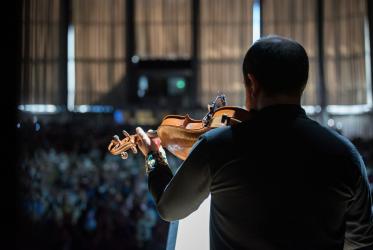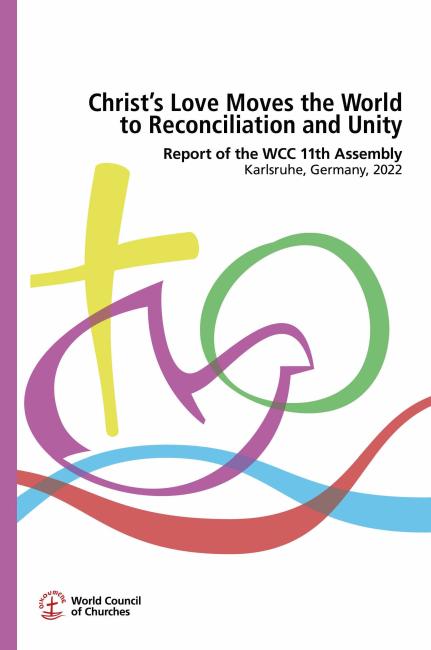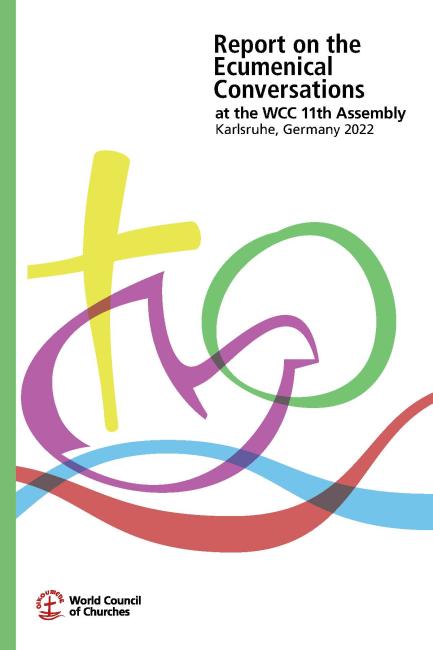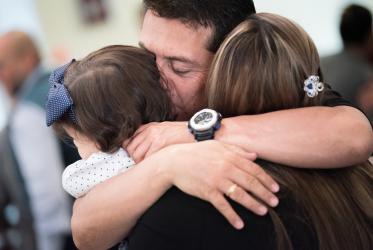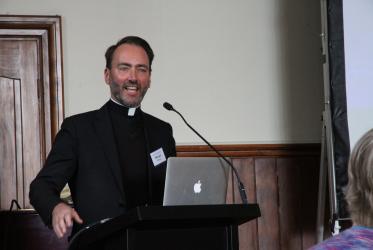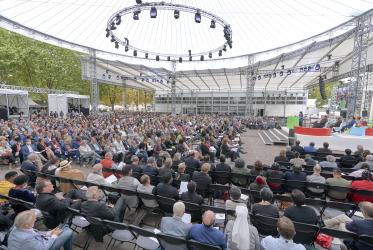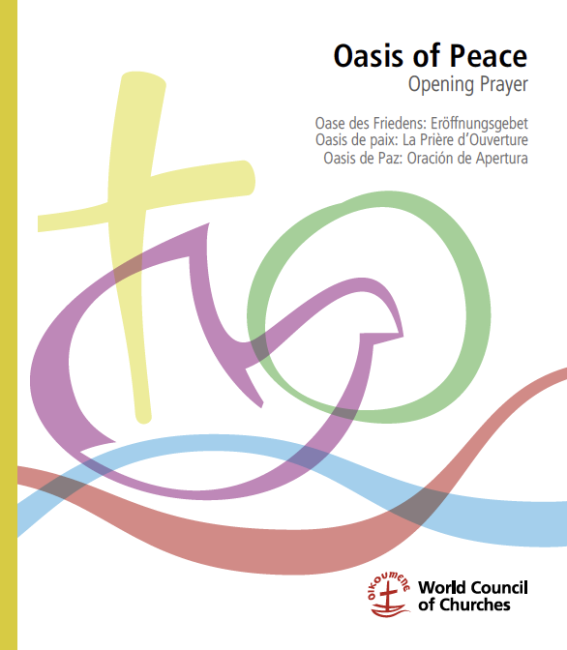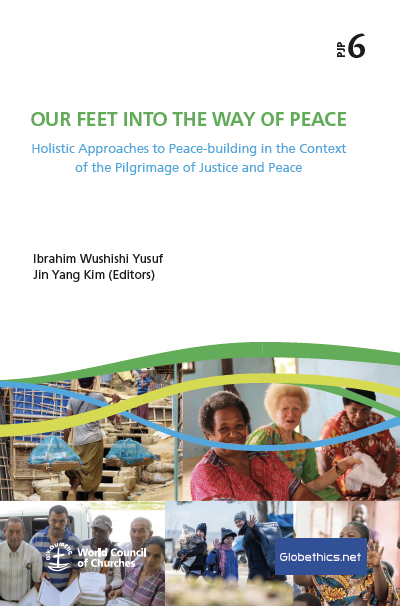Displaying 1 - 20 of 83
“Circle of Prayer” reverberates out from Dover—to the world
21 February 2024
WCC 11th Assembly: safe and welcoming environment for all
19 September 2022
Assembly workshop looked toward ending AIDS epidemic by 2030
19 September 2022
Christ’s Love (Re)moves Borders – GETI 2022 in images
13 September 2022
From hostility to hospitality: Closing prayers at Karlsruhe
09 September 2022
Bible studies bring ways to learn how Christ’s love moves us
06 September 2022
Saturday morning prayers invoke movement for truth and righteousness
03 September 2022
Oasis of Peace Opening Prayer
30 August 2022
Seek Peace and Pursue It: PJP Series 4
Reflections on the Pilgrimage of Justice and Peace in Europe
22 August 2022
Our Feet into the Way of Peace: PJP Series 6
Holistic Approaches to Peace-building in the Context of the Pilgrimage of Justice and Peace
19 August 2022
Hate Speech and Whiteness: PJP Series 5
Theological Reflections on the Journey Toward Racial Justice
19 August 2022


